7. No Country for Old Men (2007)
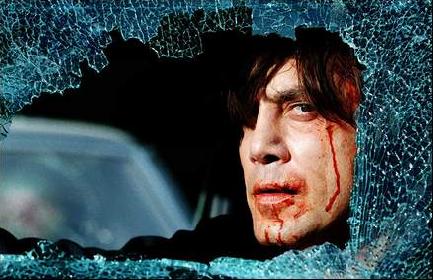
Plot & Ending: Everyman Llewelyn Moss stumbles on a drug deal gone wrong while out hunting. Among the dead bodies, he finds $2 million in cash and decides to take the money and run. Hot on his trails is Anton Chigurh, the bubonic plague of a man, tasked with retrieving the missing loot while leaving a trail of dead bodies behind him.
Lukewarm on their trails is aging lawman Sheriff Bell who meditates on the ever-changing world and needless violence at hand. The stage is set for a bloody exhilarating confrontation; only, Llewelyn is killed off-screen by the Mexicans, Anton gets off scot-free after an ambiguous meeting with Llewelyn’s wife and a random car accident, and Sheriff Bell further meditates on the state of the world.
Detractors: While critics were foaming at the mouth with its philosophical renderings, many audience members felt short-changed with its anti-climatic ending. Seeing as the three leads never meet and we never get the confrontation the film seems to be setting up, it’s understandably confusing and underwhelming on first viewing.
Defenders: Aside from the ending being directly lifted from Cormac McCarthy’s novel, many point to the film’s title as an explanation for its climax or lack thereof. It’s Sheriff Bell’s voice we first hear and his face we last see. Is he an unreliable narrator? Is his memory foggy? Perhaps, but those who got the ‘point’ found the ending justified and innovative.
Our Conclusion: Coin toss says the ending is alright.
8. Signs (2002)
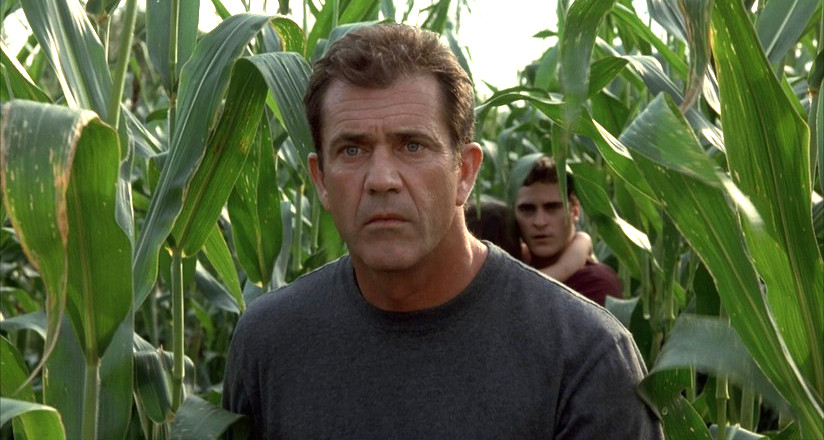
Plot & Ending: Mel Gibson and Joaquin Phoenix play farmers who discover mysterious crop circles in their cornfield in M. Night Shyamalan’s science fiction thriller. Soon the family finds themselves under siege from aliens and a glass of water saves the day, revealing that H2O is the intergalactic overlords’ weakness.
Detractors: Those pesky aliens again. Enough has been said about Shyamalan’s plot twists so we’ll move along swiftly. However, the filmmaker does such an amicable job at setting up the story and building the tension that the mass hysteria in the film is palpable. It’s understandable why many leave the viewing feeling disappointed.
The common argument being that why would a species able to travel through space invade a planet that’s 70 percent water? Why did they bide their time before attacking? Why would Joaquin Phoenix do not one but two Shyamalan films? Many attributed it to lazy writing and Shyamalan losing his touch with those plot twists that he insists on including in most of his pictures.
Defenders: But what if we view the story from a different perspective? What if the aliens aren’t as intelligent as we assume they are? What if they came here to seek resources for survival? Their origin is kept ambiguous throughout the story so we can’t truly say that they came here to conquer us. It’s the humans who think that. Their behavior suggests that they’re more likely desperate scavengers searching for something.
Our Conclusion: Still a better ending than “The Village”.
9. The Lord of the Rings: The Return of the King (2003)
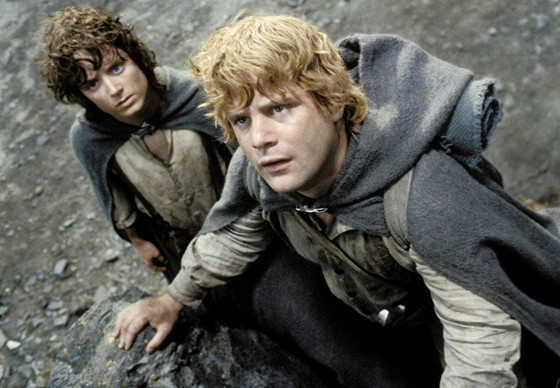
Plot & Ending: J.R.R. Tolkien and Peter Jackson’s epic trilogy comes to a satisfying end, after giving us climax after climax after climax and ironically, conclusion after conclusion after conclusion. After Frodo manages to destroy the ring along with Gollum and Sauron, Gandalf comes from the sky with the aid of the eagles to rescue them before they turn to ash.
Then there’s that awkward reunion and bed jumping. Then there’s the crowning of Aragorn (it’s called “The Return of the King”, after all). Then there are the hobbits returning to the Shire so Frodo can memoir his adventures. Then there’s Sam getting married. Then there’s Frodo departing for the undying lands with Bilbo, Gandalf, and the Elves.
Detractors: There’s been a running joke about how every time the theater audience thought that the movie was going to end, they’d prepare to leave only to settle in once again. Even Shane Black took a jab at the long ending in the closing narration of “Kiss Kiss Bang Bang” with; “Don’t worry, I saw Lord of the Rings. I’m not going to end this 17 times.” Having already sat through a three-hour runtime, some people felt that the ending of the movie could’ve been trimmed – just a little.
Defenders: Those who didn’t mind the long ending felt that with so many characters and plot points to wrap up, the long ending was justified. Tolkien and the screenwriters definitely succeeded in making every character feel rich and purposeful. So why not show what happens to them in the end? Especially Sam, who’s the heart and soul of the story. If anyone deserved a happily drawn out ending it was him.
Our Conclusion: At least they left out the Scouring of the Shire.
10. The Mist (2007)
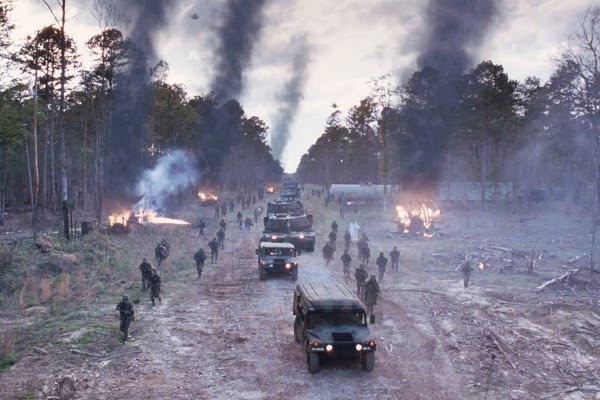
Plot & Ending: Frank Darabont’s third Stephen King adaptation sees David Drayton, his son, and locals trapped in a grocery store when a freakish mist engulfs the town, bringing with it creatures from another dimension.
As the creatures wreak havoc on the town and seeing no hope, David gets consent from his group to shoot them so they can die on their own terms. With no bullets left to use on himself, David goes into the mist shouting for the creatures to come take him. Moments later the mist clears and the military has restored order. A distraught David realizes that patience is indeed a virtue.
Detractors: One of the most gut-wrenching endings in film history had some people calling Darabont a sadist. Feeling unsatisfied by King’s original ending, the writer/director changed it to a much darker tone that’s only partially hinted as an option in the novella.
Even if David had consent from the group to take their lives, it left many viewers feeling cold when it was revealed that help was only a few minutes away. And what about his son who was too young to understand? Was it justified for David to ‘spare’ him from the creatures as well?
Defenders: Many viewers, including King, loved the darker ending. It’s definitely stood the test of time and will be remembered for years to come. If you look at it from the perspective of David and the group, it does make sense. They’ve spent the entire film’s runtime watching people they know being devoured by the creatures.
Not wanting to suffer the same fate, they agree, albeit silently, that it’s the better way to go out. The end highlights the consequences of difficult decisions we have to make in difficult situations.
Our Conclusion: If Stephen King loved the ending, that’s good enough for us.
11. Vertigo (1958)
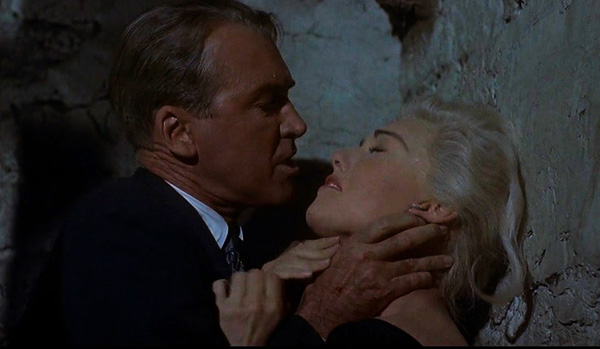
Plot & Ending: James Stewart plays cool detective Scottie Ferguson in Alfred Hitchcock’s critically acclaimed masterpiece. After a friend hires him to follow his suicidal wife Madeleine around, Scottie finds himself fascinated by the mysterious “Hitchcockian Blonde”.
Unable to overcome his acrophobia, he helplessly watches her fall to her death from the top of a bell tower in an apparent suicide. After a stint in a sanatorium, Scottie spots a woman, Judy, who reminds him of Madeleine despite the differences in looks and name. Only it is Madeleine, or was Madeleine as Judy was impersonating her so that the friend could cover up murdering his real wife with a faked suicide.
An obsessed Scottie returns Judy back to the top of the tower bell to get to bottom of it, and Judy finally confesses her role in the charade and begs Scottie to forgive her. As they embrace, a shadowed nun startles Judy who steps backward and falls to her death.
Detractors: Hitchcock was a master at breaking convention and “Vertigo” was no different. The mystery is solved before the final act with Scottie being the only one not in the know. With a plot twist that looks like it came straight from a cartoon, the biggest complaint is that the story isn’t plausible. It’s hard for some audiences to lose themselves in the film when they don’t buy the many plot twists offered throughout the story.
Defenders: The critical re-evaluation the film has enjoyed over the years has led many to theorize on its intended meaning. Perhaps the nun symbolizes judgment on Judy’s crimes and her death is punishment. Perhaps Scottie is imagining it all and Madeleine did really jump to her death the first time, and continuing the story was Scottie’s only way of coping. Hitchcock does seem to hint at Scottie’s infatuation with Madeleine throughout the film.
Our Conclusion: At least Scottie overcame his fear of heights.
12. The Witch (2015)
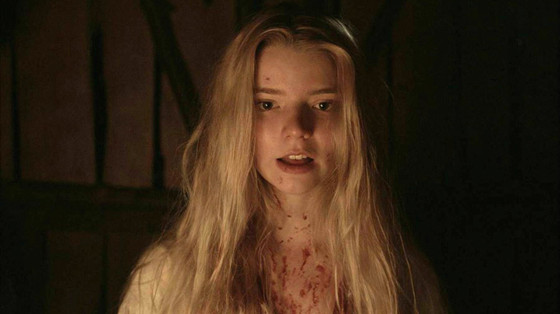
Plot & Ending: After a difference of interpretation involving the New Testament, a Puritan family decides to go at it alone and leave their church and plantation. They build themselves a decent farm at the edge of a secluded forest, only to be stalked by forces of evil from within.
Said forces eventually drive the family apart, and the eldest daughter and last survivor, Thomasin, succumb to the dark side by making a pact with a talking goat who can also transform into a handsome man. Said goat leads a naked Thomasin deep into the forest where she joins a coven of witches who dance naked around a bonfire and levitate above the trees.
Detractors: Another film that split critics and audiences, with the former finding it as a cinematic masterpiece and the latter finding it a misrepresented bore. The end had people asking why a good Christian girl would turn on her faith. And why did she seem to enjoy it? While most of the story was grounded in reality with hints of fantasy, the end had people suspending belief and finding it hard to comprehend.
Defenders: Those who loved it appreciated the slow burn over the cheap jump scares that usually come with horror. Focusing on what fear does to people over fear itself, we literally watch the family turn on each other, or more specifically, Thomasin. Coming into womanhood, her sexuality and independence is a cause for distrust, especially with her mother.
As an outsider in her own family, she’s easily marked by Satan and after he succeeds in tearing them apart, she sells her soul in an act of desperation that liberates her in ways her family never did.
Our Conclusion: Either way, we expect great things from Black Phillip the goat.
13. A.I. Artificial Intelligence (2001)

Plot & Ending: David, one of the world’s first robotic humanoids capable of thought and emotion, is adopted by the Swinton family to help them cope after their son is placed in suspended animation. When things don’t ultimately work out because well, the kid’s a robot, David sets on a Pinocchio-esque journey to find the mythical Blue Fairy who can turn him into a real boy to gain back the affection of his parents.
Detractors: Stanley Kubrick’s passion project has been a source of constant debate since Steven Spielberg took over the reins after his passing. Many wondered how the film, especially the end, would have differed if Kubrick was at the helm.
After seemingly arriving at the bleak finale that some people think is where Kubrick would’ve originally concluded the story, 2,000 years pass and the film ends on a much ‘happier’ note. A note that many felt came out of nowhere. Is Spielberg being Spielberg with his sentimental ending? By robbing David of death, does it betray the humanity that he so desperately seeks?
Defenders: Steven Spielberg has defended his version, noting that he closely followed the treatment that Kubrick was working on, and it was his obligation to see it through. The story does have a fairytale motif that fits perfectly with its conclusion. David’s character is able to get closure, even if it’s only for a day. Compared to the bleak endings that science fiction usually offers, “A.I.” ends on a much more humane note, which supplements David’s desire to become a real boy.
Our Conclusion: Kudos to Spielberg for making the film that would’ve probably never seen the light of day.
Author Bio: Allan Khumalo is a lover of all things cinema. That is all.